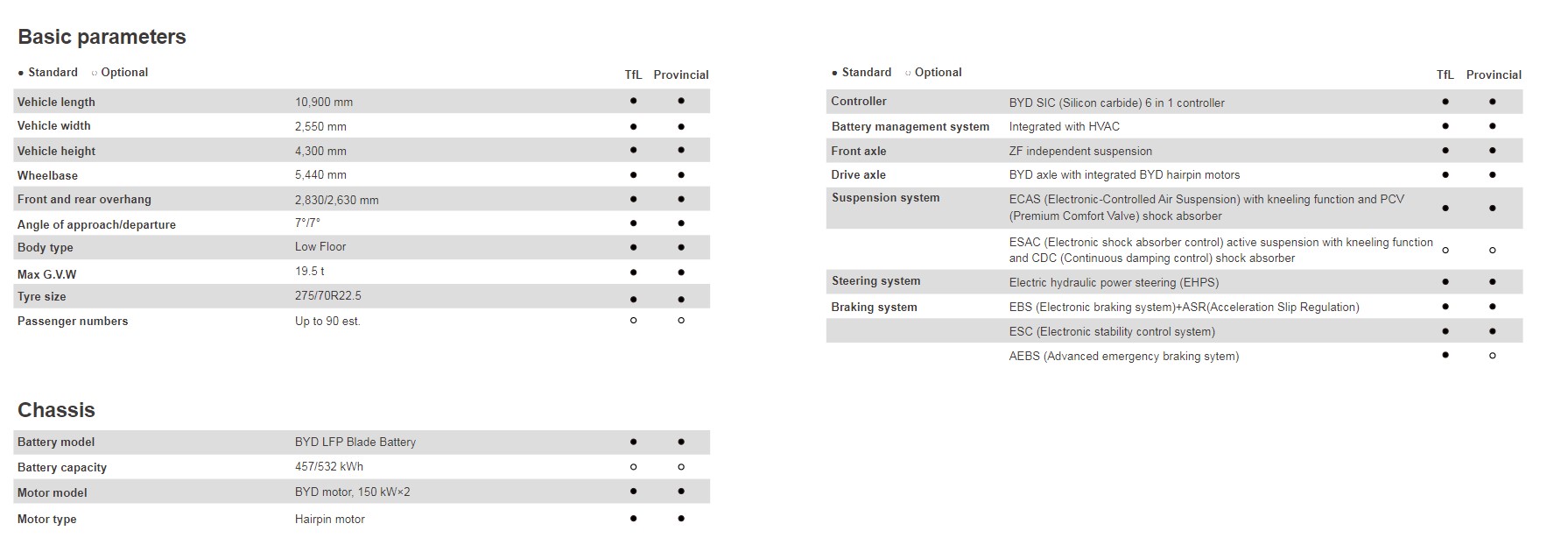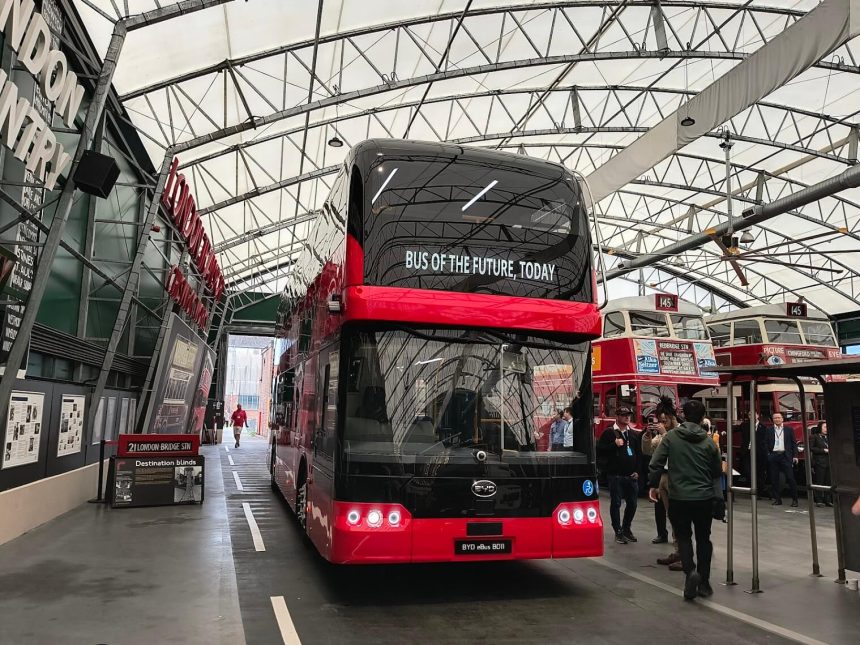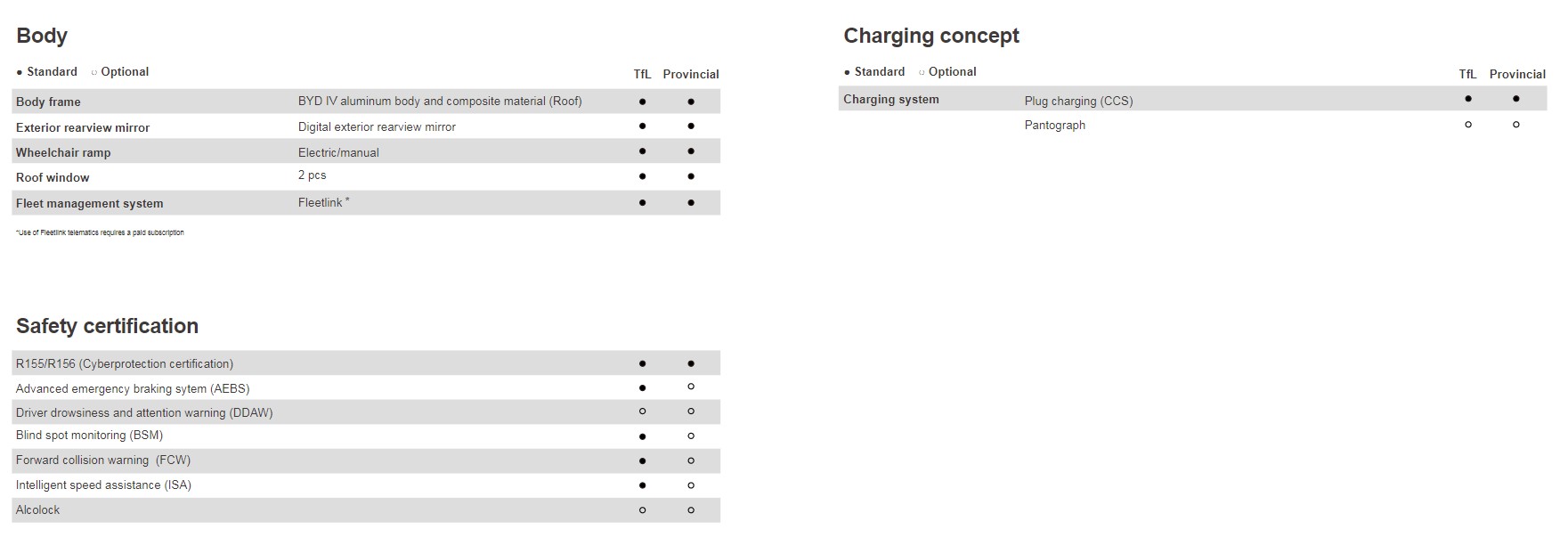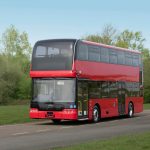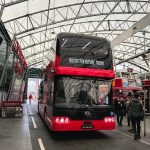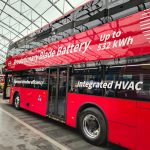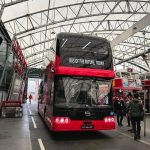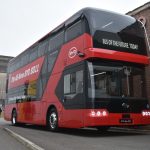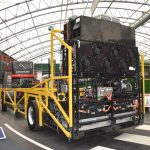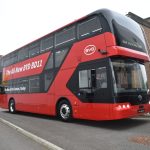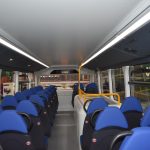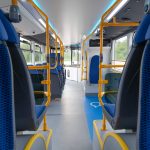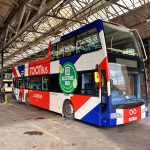BYD has presented what it calls a “viable” battery-electric offering in the shape of its BD11 double-decker bus, which was launched for the London market today.
The BD11, the Chinese giant’s first complete bus for the UK to be launched in 10 years, is set to be in operation in the capital within the next few months, promising a competitive price point. A single-decker to meet Transport for London (TfL) specifications, as well as as single- and double-deck models for the provincial markets, will follow by the middle of 2025.
BYD declined to confirm details of the deal rumoured to be worth more than 100 units, although media reports have claimed it is with Go-Ahead and that the vehicles are around 25% cheaper than UK-manufactured equivalents.
Featuring innovative Blade battery technology, the manufacturer of the 10.9m-long BYD BD11 promises lightweight efficiency and stability with “market-leading” battery capacity of up to 532kWh.
BYD’s Blade battery has been integrated into the chassis to save a claimed 8% in the overall weight of the BD11, increase driving range and leave more room for passengers – in this case up to 90.
Although an official range claim is delayed until testing has been completed, BYD says charging from 0 to 100% will be possible in two hours via the pantograph option and that it is determined to provide the safest battery in the market.
After having launched a complete single-decker into the UK in 2013 and also having provided the chassis for 1,800 Alexander Dennis-bodied buses in operation nationwide, today’s launch was a pivotal moment.
That was highlighted by Frank Thorpe, Managing Director, BYD UK Commercial Vehicles, at the event at the London Bus Museum in Weybridge.
“The UK industry needs a viable electric bus,” Mr Thorpe says. “It needs to be viable technically, commercially and operationally. We need the bus of the future but we need it today.
“What we’re giving you today is a bus that will go further, for longer, for less.”
He adds: “I am not going to be ashamed of the fact that we are so competitive, and the reason we’re so competitive is we manufacture the high-value items in the bus, so the battery, the controller, the motor are all designed and manufactured by BYD.
“We’re not buying them in so we’re not paying someone else’s margins. I’m going to use that advantage and I don’t think there’s anything wrong with that and that’s nothing to do with us being a Chinese business.”
BYD plans to have ready a single-decker for the provincial market in the UK by the fourth quarter of this year, a single-decker for London in the first quarter of 2025 and a provincial double-decker by the middle of next year. Further down the line, it has ambitions for additional models, including at midibus size.
Using lithium iron-phosphate as its cathode material, BYD claims the Blade battery offers a much higher level of safety than conventional lithium-ion batteries, with the addition of high durability. The manufacturer says it “takes battery safety to a new level, while offering outstanding strength, range, longevity and power”. The flatter design allows for 50% improved space utilisation, it adds.
Among the other safety features is advanced driving assistance systems, including Advanced Emergency Braking System, Blind Spot Monitoring (BSM), Forward Collision Warning (FCW) and Intelligent Speed Assistance (ISA).
It also features BYD’s six-in-one controller, two 150kW hairpin motors, Integrated Thermal Management System and Active Suspension Control System.
It also boasts an 8.00m turning radius – an improvement of 1.3m on BYD’s previous generation of bus.
Founded in 1995 with an initial focus on batteries, BYD has expanded to employ around 700,000 in 40 branches worldwide. Its automobile arm entered the “new energy” coach and bus market in 2009.
BYD BD11 technical data
